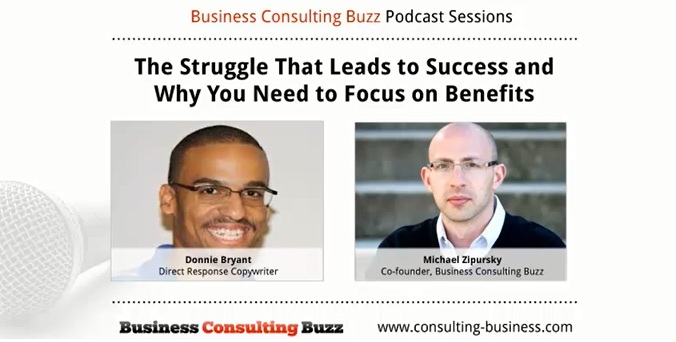Gary Halbert, one of the smartest marketers in history, said he believed most people would choke to death in a restaurant before they’d allow someone to perform the Heimlich maneuver on them.
I don’t think he was far off the mark.
Why would Gary make a statement like that?
I wasn’t there when he said it, but I think I understand his reasoning. He was trying to shed some light on the biggest force that stops most people from making the kind of progress they’re capable of making.
I’ll come back to this in a moment.
Your Real Job as an Entrepreneur, Salesperson, Marketer or Other Kind of Influencer
As a business owner, copywriter or marketer, you have a two-fold duty:
1. Create value for your clients/customers.
2. Get them to take action.
(Sometimes your ability to induce action is itself the value you create.)
I’ve often said it this way: A salesperson/marketer/copywriter’s job is to empower people do the things they already want to do.
They want a more comfortable temperature in house during summer, so you help them get the right air conditioner, etc.
A big part of that process is education. Education is in powerful tool for persuasion, but if it’s not helping the would-be customer take action to improve his life, it’s lacking. Consider this: a teacher gets paid to “do the work,” preparing lessons, presenting to the class, grading homework. As entrepreneurs and marketers, we don’t make money by simply doing the work. We have to impel customers to act.
What Holds People Back?
What keeps people from buying even when they’re in the market for a specific product, they can see the benefits and can afford to make the purchase?
The main reason is fear. The fear of making the wrong choice, looking stupid or getting burned. The fear of having to explain the purchase to a spouse or business partner.
Here’s a big one — the one Gary Halbert was referring to in the statement above: People are very protective of their comfort zones. Halbert said that people will “struggle harder to stay in their comfort zones than they will to save their own lives.”
When you ask someone to change their habits, their preferred brands or their way of looking at things — you’re asking a lot — even if it will get them closer to the future they want.
This applies to YOU as an entrepreneur or marketer.
We often cling to our way of doing things, even when we know there’s a more efficient way.
Or…
We spend hour after hour educating ourselves, only to keep doing the same things, the same way.
I’m guilty, too. Over the years, I’ve only implemented a fraction of the ideas I’ve spent hundreds of hours consuming.
Herein lies the rub: nothing is going to change if you don’t change it. You can either take responsibility for your own results or you can make excuses. One of those options empowers you; the other gives your power away.
If there’s something your business needs but doesn’t have…
If there’s something you need to do, but you’re not sure how to make the next step (or the first one)…
If there’s an urgent problem you have no idea how to solve…
…Own it! Then take action to get what you need.
Quoting Gary Halbert again, MOTION is the biggest difference between winners and losers. He said “You don’t have a choice of being afraid or not afraid in life; you’re going to be afraid. You’re either going to be afraid and frozen or scared and moving.”
Isn’t it time to get in motion?
P.S. Need help skillfully persuading your prospects and clients to take action? Come to my Irresistible Offers teleseminar August 11th.


